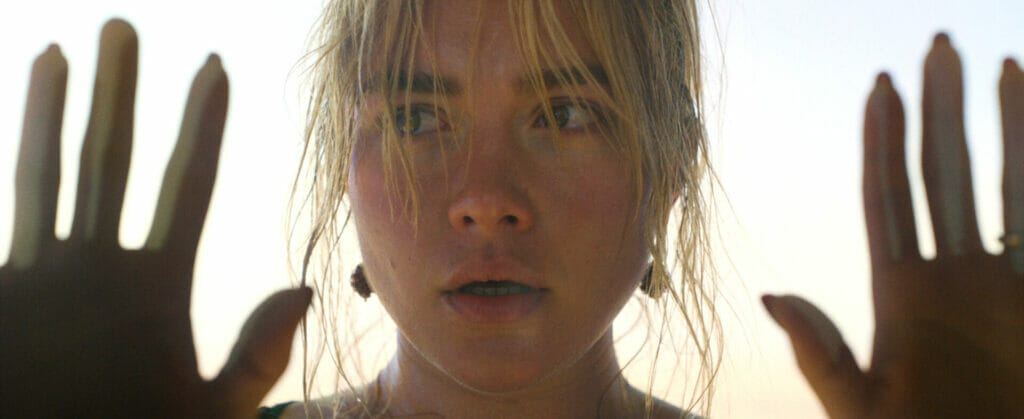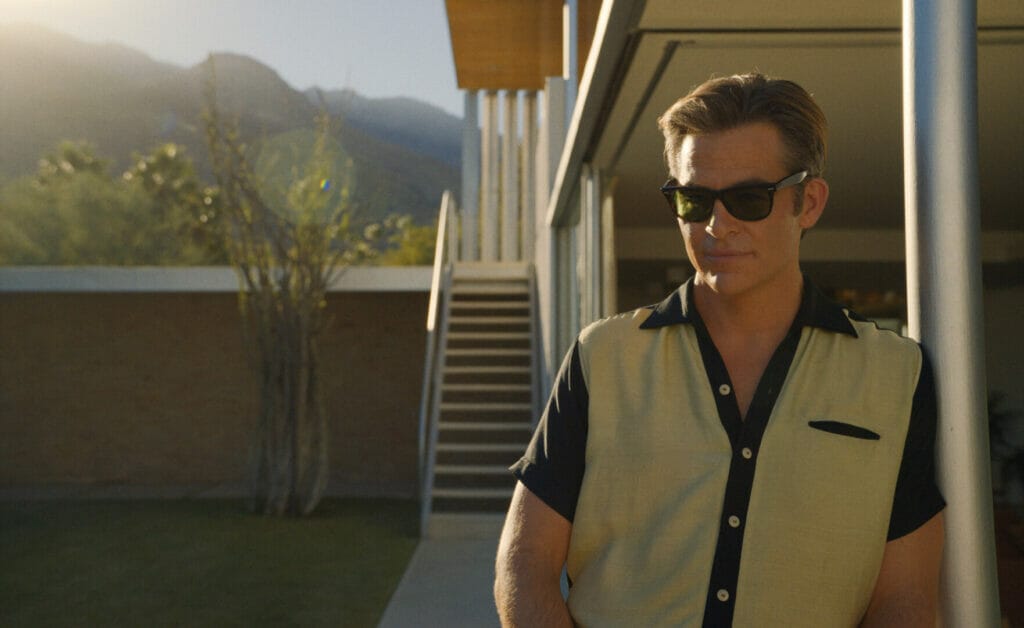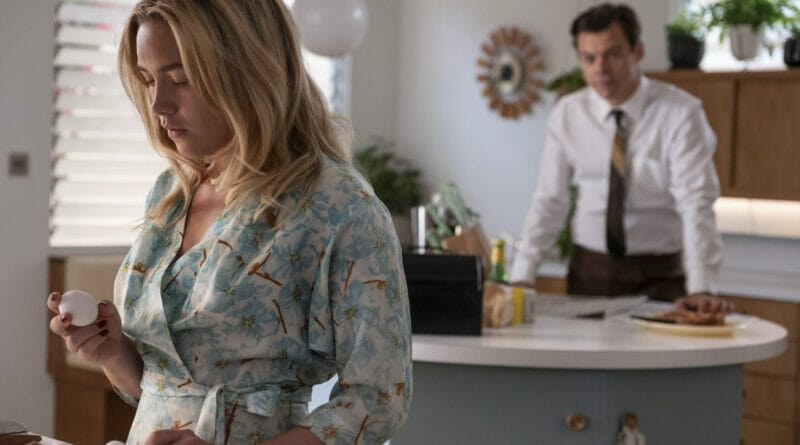Similar to a desert mirage, Don’t Worry Darling has rewards in the distance that end up being non-existent
Florence Pugh’s performance and sleek direction are the eventual oases. No, we are not going over the volumes of drama surrounding this latest Olivia Wilde effort. However, if the cast and crew of “Don’t Worry Darling” would adopt the same collaborative storytelling talents of the average TMZ newsroom, this would be a much more positive review. TMZ works day and night to fill in the holes of Harry Styles spitting on Chris Pine, Shia Lebeouf’s exit from the film, Nick Kroll’s incessant Big Mouth voices on sets, ruining takes (Nerdy Basement Exclusive!).
While serious writing is being applied to create a clear timeline of a dysfunctional set, the script to “Don’t Worry Darling” is riddled with glaring plot holes and awkwardly contrived feminist ideas. In the end, “Don’t Worry Darling” is a very flawed and half-baked end-of-summer blockbuster. It sure did bust the block for Harry Styles stans!
We begin with an exhilaratingly stylish sequence of a daily ritual. The husbands of a small, Palm Springs-esque desert town head to work in their classic all-American cars. The wives are left to tend to housework, gossip, and make dinner. The dedication to its implied time period is a bit of something to admire about “Don’t Worry Darling”. The set design of every scene is impressively polished with period-accurate pieces with hints of modernity. It all makes for an exciting sandbox for director Olivia Wilde to play in.
Following her acclaimed and refreshingly hilarious debut with “Booksmart”, it’s only right to give Wilde free reign to tackle something as big as a “psychological thriller” (Note the quotation marks). The chemistry of the stars and the united understanding of Wilde’s vision was noticeably apparent in “Booksmart”. In “Don’t Worry Darling”, it’s not hard to tell every single person was working to make their own movie. Yes, I am mostly talking about those performances.

For everybody reading this for Harry Styles, let’s get this out of the way. Harry Styles isn’t that bad as Jack. However, Florence Pugh is otherworldly fantastic as Alice. This, in turn, makes Harry Styles look like Tommy Wiseau. Throughout the film, you are wishing Pugh had someone talented and skilled enough to bounce her magnetic performance off of. She elevates every scene she’s in with these incredible displays of extreme emotion. In one particularly important scene, Pugh plays the scene with raw, naturalistic human responses and Harry plays it like he’s in “House of Gucci”.
This makes the idea of “different movies at play”, painfully obvious. Wilde fills the role of Bunny, Alice’s next-door neighbor. She doesn’t exactly shine in front of the camera but behind it is where I found her talent much more interesting. A lot of “Don’t Worry Darling” took some vision to execute. If it couldn’t narratively fulfill its promises, Wilde was there with some striking close-ups and compelling shot compositions to deliver as much as she could. The shining sun of the desert town was captured to full effect thanks to Wilde’s talents as the director but none of it is enough to deliver a satisfying thriller
The occupants of Victory, California have a charismatic and elusive leader in Chris Pine’s Frank. Pine is as good as you might expect from a character written as a hollow boogeyman to front even hollower social commentary. But he does it! He does it with that “best Chris” smolder he’s got– one might even say he smolders circles around Harry Styles. Frank serves as the boss to the husbands of Victory in a cult-leader-type position. Verbal opposition or defiant actions, intentional and unintentional, are met with serious scoldings from Nick Kroll.

I, personally, wouldn’t take any scoldings from Nick Kroll but that’s just me. In the same way, occupants aren’t allowed to ask questions going against Frank and his intentions, audience members are asked to do the same with the swiss cheese script at play. Plot holes happen, it’s not something to whine about for too long. But what really bugs about “Don’t Worry Darling’s” script is its constant abandonment of vital story elements. The “psychological” of “psychological thriller” is dropped for a cheesy villain reveal that not only diminishes interest in the journey of Alice but makes the rest of the story fall flat.
The social commentary in the script has a comfy spot in the backseat of the premise; always present but never driving the car. But somewhere towards the end, the SC whacks the premise in the head with a scotch glass, killing it, and then drives the car full speed to the end. Credits roll and we are left with dissatisfaction.
“Don’t Worry Darling” allure wears off when it gives up the willingness to wow. Those who catch it at the theater will notice that the film they came to see isn’t the one they were given. Many liken it to a cheap episode of the Netflix anthology “Black Mirror”. You are much better off watching an episode from home than paying $17 to watch Harry Styles struggle to keep up with Florence Pugh’s talents. However, it is fun to go home and poke holes through everything the film laid out with your friends.
“Don’t Worry Darling” is now playing in theaters.
Want to discuss things further? Hit us up on Twitter, Facebook, or Instagram. And for more film, gaming, anime, and TV news, trailers, and updates make sure to keep it locked right here at The Nerdy Basement. While you’re here, please consider supporting us on Patreon! It’s an easy way of supporting us so we can keep providing you with your Nerdy News!

